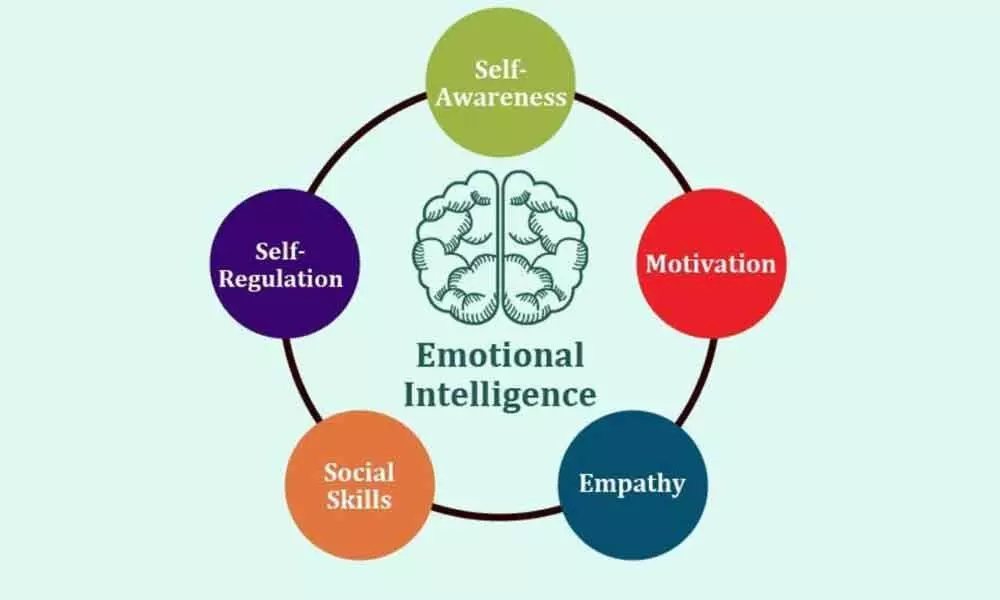Emotional Intelligence - key component of growth in students

One key ingredient that needs to be tapped in all relationships be it at workplace or home is Emotional Intelligence also known as Emotional Quotient.
One key ingredient that needs to be tapped in all relationships be it at workplace or home is Emotional Intelligence also known as Emotional Quotient. Emotional Intelligence as defined by Meyer Salovey "One's capacity to perceive, process and regulate emotional information effectively both with oneself and others and to use this information to guide one's thinking, actions and influence those of others."
In a technology-driven world, beyond internal and external stakeholders, customers, career-driven performance at work, handling people at is an art.
As you assess your Emotional Intelligence and work towards self-improvement, one needs to know how emotionally intelligent they are. One has to focus on the barriers as it isn't enough just being intelligent, one has to improve on several social skills. Habits need to be changed for better personal and professional life. Understanding the importance of skills that will make one a better human being. It's a key to a more productive you.
According to Varsha, Class 10 of St Ann's High School, BHEL, she analyses situations from an emotional standpoint by balancing different emotions. Being the Literary Captain, she deftly handles speakers, expressions and delivery at school.
Some of the high achievers have excellent Emotional Quotient scores. They are skilled at identifying and regulating emotions which is a major success factor. Key component of Emotional Intelligence is not only managing others but oneself at all times.
People with high Emotional Intelligence never react without assessing a situation. They review and control themselves from saying or doing anything impulsive. Mood enhancement, assessing people, asking questions, reflecting, empathizing are key to make situations better. They place themselves in other's situations. One can start leading a happy life by making people feel better.
Deepthisri of St Ann's High School, states that 'emotional intelligence is important so I make it a point to correct myself, analyse positive and negative thoughts, talk to people by doing a checklist. I am aspiring for IAS' she adds.
In leadership, people with high Emotional Intelligence have the ability to manage and understand own emotions and those of others.They know their feelings, what their emotions mean, and how it can affect others. For success, emotional intelligence is essential for leaders.
Self-awareness helps in knowing the strengths and weaknesses, makes one accountable by practicing humility. Self-regulation keeps one in control at all times as emotional intelligence varies from person to person. Motivation makes one work towards a goal which should be high in standard.
Empathy enables one to manage people and teams successfully. Looking at the point of view of others, constructive feedback, respecting the feelings of others. Social Skills are key to success at work and in different personal situations. Good communication and interpersonal skills, able leadership, efficient public speaking, efficient body language, connecting with others to name a few.
Emotional Intelligence can play a meaningful role in academic and professional success, mental and physical health. If taught in schools, students grow up to become emotionally intelligent adults. It improves the physical and psychological health of students by encouraging academic performance. One can form meaningful human relations, be open to change, and have empathetic perspectives.
Emotional Intelligence if cultivated enables one to lead a happy and balanced life. In the words of Maya Angelou: "I've learned that people will forget what you said, people will forget what you did, but people will never forget how you made them feel."








